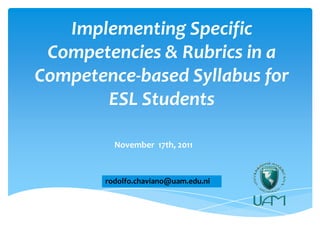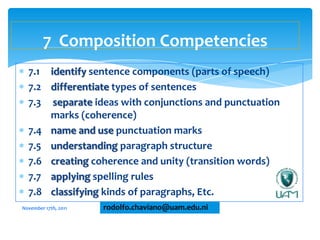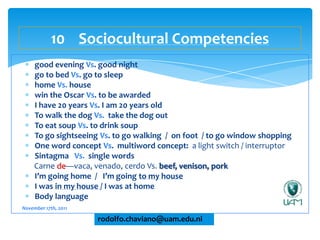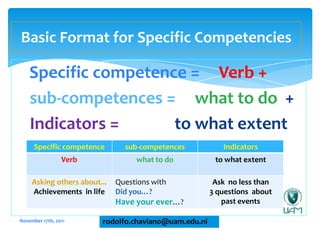The document outlines specific competencies and rubrics for a competence-based syllabus designed for ESL students, emphasizing various language skills such as speaking, listening, reading, writing, and cultural understanding. It details specific competencies required in these areas, along with examples and assessment criteria for each skill. Additionally, it provides templates for measuring competencies and outlines expected outcomes for students in an ESL context.






















